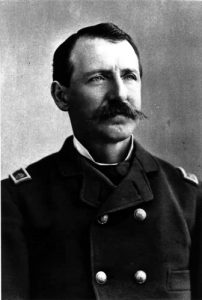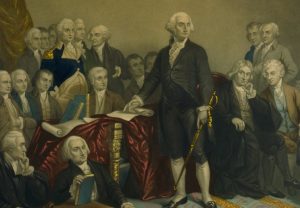law
 Strange laws seem to be a part of our legal system. I suppose they might have had a purpose at some point, but somehow most of us just can’t see what it might have been. Section 18-54 of the Little Rock Arkansas city ordinances says, “No person shall sound the horn on a vehicle at any place where cold drinks or sandwiches are served after 9:00 p.m.” Immediately my mind begins to question this law, known as the Little Rock Sandwich Shop Law.
Strange laws seem to be a part of our legal system. I suppose they might have had a purpose at some point, but somehow most of us just can’t see what it might have been. Section 18-54 of the Little Rock Arkansas city ordinances says, “No person shall sound the horn on a vehicle at any place where cold drinks or sandwiches are served after 9:00 p.m.” Immediately my mind begins to question this law, known as the Little Rock Sandwich Shop Law.
It is mind boggling to think that this could have been such a constant problem  in Little Rock that it could require immediate legal intervention. And it wasn’t that honking in front of the sandwich shop was a problem all the time, just after 9 p.m. In reality, that isn’t even late. So, honking after 9 p.m. would get the culprit a citation and a fine, but what if you were trying to prevent an accident? Think about it. What a choice, have an accident, or get a ticket for trying to prevent one. So, with our accident, does the person who honked to prevent the accident get the ticket, or is it the guy who caused the accident, but obeyed the law, and didn’t honk.
in Little Rock that it could require immediate legal intervention. And it wasn’t that honking in front of the sandwich shop was a problem all the time, just after 9 p.m. In reality, that isn’t even late. So, honking after 9 p.m. would get the culprit a citation and a fine, but what if you were trying to prevent an accident? Think about it. What a choice, have an accident, or get a ticket for trying to prevent one. So, with our accident, does the person who honked to prevent the accident get the ticket, or is it the guy who caused the accident, but obeyed the law, and didn’t honk.
 Now, be aware that “drive-by honkings” that are performed prior to 9 p.m. are completely acceptable, so any sandwich shop heckling that you may have planned just had to be completed with this time frame in mind. I leave questions like these to be answered by those with more formidable legal minds than myself. My guess is that it had something to do with teenaged drivers, who were really just out for a good time, and wanted to say “Hello” to their friends. I suppose the adults didn’t like all the honking, but seriously, how early do these adults go to bed, or need their quiet time, anyway. Whatever the case may be…this was one law that could only be classified as ridiculous.
Now, be aware that “drive-by honkings” that are performed prior to 9 p.m. are completely acceptable, so any sandwich shop heckling that you may have planned just had to be completed with this time frame in mind. I leave questions like these to be answered by those with more formidable legal minds than myself. My guess is that it had something to do with teenaged drivers, who were really just out for a good time, and wanted to say “Hello” to their friends. I suppose the adults didn’t like all the honking, but seriously, how early do these adults go to bed, or need their quiet time, anyway. Whatever the case may be…this was one law that could only be classified as ridiculous.
 When people go missing these days, we are often not surprised. People seem to go missing all the time. Of course, most of them are murdered, or believed to be murdered. Very few are ever seen again, and as often as not, no one is ever prosecuted for their murder. This is not necessarily a new situation either. On February 1, 1896, one Albert Jennings Fountain and his eight year old son, Henry went missing near White Sands, New Mexico on their way home, after Fountain had attended a court term in Lincoln County. Mrs Fountain reported the two missing, and a search party was sent out the next day. On the Tularosa-Las Cruces road, about 45 miles from his home, the buckboard and team were found, along with Fountain’s papers, several empty cartridge casings, and two pools of blood. Missing were Fountain, his son, and Albert’s Winchester rifle.
When people go missing these days, we are often not surprised. People seem to go missing all the time. Of course, most of them are murdered, or believed to be murdered. Very few are ever seen again, and as often as not, no one is ever prosecuted for their murder. This is not necessarily a new situation either. On February 1, 1896, one Albert Jennings Fountain and his eight year old son, Henry went missing near White Sands, New Mexico on their way home, after Fountain had attended a court term in Lincoln County. Mrs Fountain reported the two missing, and a search party was sent out the next day. On the Tularosa-Las Cruces road, about 45 miles from his home, the buckboard and team were found, along with Fountain’s papers, several empty cartridge casings, and two pools of blood. Missing were Fountain, his son, and Albert’s Winchester rifle.
Albert Jennings Fountain was born in Staten Island, New York on October 23, 1838 to Solomon Jennings, a sea captain, and Catherine de la Fontaine Jennings, Albert grew up to go to Columbia College before traveling all over the world as a tutor. He then settled in California, where he worked at a newspaper before studying law in San Francisco. Though the reasons are unknown, Albert began to go by the name of “Albert Jennings Fountain,” an Anglicized version of his mother’s family name. In August, 1861 he enlisted in the Union Army and was commissioned as an officer in California Column. He participated in the Union conquest of the Confederate Territory of Arizona and fought at the Battle of Apache Pass.
During his time in the army, he married Mariana Perez in October, 1862 and the two would go on to have nine children. By the time he was discharged at the end of the Civil War, Albert had obtained the rank of captain. He and his family settled in El Paso, Texas, where he went to work for the United States Property Commission, which investigated and disposed of former Confederate property. Later he worked as a Customs Collector, was appointed an election judge, and the Assessor and Collector of Internal Revenue for the Western District of Texas. With this background, it is not surprising that he decided to try politics and in 1869, he won a seat in the Texas Senate. Fountain’s radical Republican views angered many Texas Democrats…my kind of guy. During the El Paso Salt War, Albert got into a shootout with a man named B. Frank Williams on December 7, 1870. Albert was wounded three times, but he killed Williams.
In 1875, the Fountain family moved to Mesilla, New Mexico, where his wife was from. It was here that Fountain began his law practice. Southern New Mexico, at that time, was still subject to frequent Indian raids and in 1878, Fountain became a captain in the first company of militia in southeast New Mexico, fighting in the campaigns against Chief Victorio and Geronimo. Continuing to serve in the militia, Fountain would reach the rank of colonel, a title that he was called for the rest of his life. In 1881, he was appointed to defend Billy the Kid in his charge for murder. In 1885, Fountain moved to Las Cruces to prosecute Federal land frauds. In 1888, he was elected to the New Mexico legislature, eventually becoming speaker of the house. Afterwards, he became a special prosecutor for livestock associations. In 1894 convicted 20 men for cattle rustling. His work as a politician and an attorney acquired numerous enemies for Albert, a fact that would prove to be fatal.
After an investigation into the disappearence, it was thought that a noted New Mexico gunman and rancher named Oliver M. Lee, along with two of his employees named Jim Gililland and William “Billy” McNew had perpetrated the crime. Eventually, all three were tried for the crime, but were acquitted for lack of evidence, namely the bodies, and the case remained open, with the Fountain bodies having never been found. Some historians also believe that the famed Sheriff Pat Garrett was assassinated while heavily investigating the Fountain murder, and that he might have been getting close to answering the age old question, “who done it”.

 Over the years of her adulthood, my niece, Jessi Sawdon has been an excellent organizer. She worked as a runner for a law office in high school, and the moved on to working as a legal secretary. She was also active in the young professionals association. She was the epitome of a professional career girl. It would have looked to the untrained eye, that Jessi would go far in the corporate world, and maybe even become a lawyer, but those of us who know her well, do not have untrained eyes. While Jessi is a great organizer, a savvy legal secretary, and a great career girl, she also had a greater calling.
Over the years of her adulthood, my niece, Jessi Sawdon has been an excellent organizer. She worked as a runner for a law office in high school, and the moved on to working as a legal secretary. She was also active in the young professionals association. She was the epitome of a professional career girl. It would have looked to the untrained eye, that Jessi would go far in the corporate world, and maybe even become a lawyer, but those of us who know her well, do not have untrained eyes. While Jessi is a great organizer, a savvy legal secretary, and a great career girl, she also had a greater calling.
When Jessi met her future husband, Jason, she was almost complete. Jessi and Jason were perfect for each other from the start. Their personalities, their goals, and their crazy sense of humor, all seemed to line up perfectly. I guess that’s what happens when a match is made in Heaven. Things were changing for Jessi, and at first, it was hard to be sure where all this was heading, but the sure thing was that Jessi’s life, and Jason’s too, for that matter, were never going to be the same. I’m sure they didn’t know where things were headed…at first, but before long, they knew that theirs was a forever kind of love. Jessi and Jason got married on August 18, 2012, and settled into married life. They were parents to their sweet dog, Daisy, and Jessi went back to school. For a while, it looked like the career girl was going to push forward in her career, and maybe even become a lawyer or something.
But, Jessi still had that greater calling…motherhood. On August 25, 2016, their daughter, Adelaide Ione Sawdon came along. Suddenly, both Jessi and Jason knew what their greater calling was!! And with the greater calling…life has changed…forever. Jessi and Jason found out that their greatest calling…parenthood, was like no other calling in the world. Life would get crazy. They would lose sleep…many times, both now and in the future. They would laugh and cry with their little girl, because they would intensely feel every emotion she did. That’s what parents do. Parents feel every scraped knee, every bumped head, every failed attempt to do whatever their child is trying to do, and every victory when they are successful at their ventures. As their child learns the ropes of life, their parents watch, hoping to help their little one avoid as many of life’s pains and hurts as possible, while celebrating every accomplishment that the precious gift, that is their child makes as they go through their life. There is truly no greater calling than that, except the calling to God’s service, of course.

 Jessi’s life has changed in many ways since her marriage and motherhood. In some ways, life has taken on a more relaxed pace, but that doesn’t mean that she is no longer a career girl, she just found an attorney who lets her work from home. That keeps her foot in the door, so that if she wants to go back into a career full time, she could do that later on. Don’t think that a relaxed pace means a slow pace, however, because as any parent knows having a child in the house is anything, but slow paced. Today is Jessi’s birthday. Happy birthday Jessi!! Have a great day!! We love you!!
Jessi’s life has changed in many ways since her marriage and motherhood. In some ways, life has taken on a more relaxed pace, but that doesn’t mean that she is no longer a career girl, she just found an attorney who lets her work from home. That keeps her foot in the door, so that if she wants to go back into a career full time, she could do that later on. Don’t think that a relaxed pace means a slow pace, however, because as any parent knows having a child in the house is anything, but slow paced. Today is Jessi’s birthday. Happy birthday Jessi!! Have a great day!! We love you!!
 For anyone who has watched the process of getting a bill made law in Congress, the word Veto is a well known word. If the president doesn’t like the bill, he can always threaten to veto it, forcing Congress to get a two-thirds majority vote in both the House of Representatives and in the Senate to override his presidential veto. The exact number depends on how many representatives vote, so the actual number is subject to change. The word veto is Latin for I forbid, and it is the power used to unilaterally stop an official action, especially the enactment of legislation. Therefore, if the president doesn’t like the bill, even if it has passed the House and Senate, he can veto it to see if he can keep it from being passed on a second vote.
For anyone who has watched the process of getting a bill made law in Congress, the word Veto is a well known word. If the president doesn’t like the bill, he can always threaten to veto it, forcing Congress to get a two-thirds majority vote in both the House of Representatives and in the Senate to override his presidential veto. The exact number depends on how many representatives vote, so the actual number is subject to change. The word veto is Latin for I forbid, and it is the power used to unilaterally stop an official action, especially the enactment of legislation. Therefore, if the president doesn’t like the bill, even if it has passed the House and Senate, he can veto it to see if he can keep it from being passed on a second vote.
The first veto ever exercised was by President George Washington on April 5, 1792. The bill introduced a new plan for dividing seats in the House of Representatives that would have increased the amount of seats for northern states. After consulting with his politically divided and contentious cabinet, President Washington, who came from the southern state of Virginia, ultimately decided that the plan was unconstitutional because it provided for additional representatives for some states, and it would have introduced a number of representatives higher than that allowed by the Constitution. After a discussion with  the president, Thomas Jefferson wrote in a letter that votes for or against the bill were divided along perfectly geographical lines between the North and South. Jefferson observed that Washington feared that a veto would incorrectly portray him as biased toward the South. In the end, Jefferson was able to convince the president to veto the bill on the grounds that it was unconstitutional and introduced principles that were liable to be abused in the future. Jefferson suggested apportionment instead be derived from “arithmetical operation, about which no two men can ever possibly differ.” With Washington’s veto, the bill was sent back to Congress. Though representatives could have attempted to overrule the veto with a two-thirds vote, Congress instead threw out the original bill and instituted a new one that apportioned representatives at “the ratio of one for every thirty-three thousand persons in the respective States.” That is a much more fair plan, in my opinion. George Washington would go on to veto one more bill during his time in office. In February 1797, the former commanding general of the Continental Army vetoed an act that would have reduced the number of cavalry units in the army. Neither of the vetoes were overridden by Congress.
the president, Thomas Jefferson wrote in a letter that votes for or against the bill were divided along perfectly geographical lines between the North and South. Jefferson observed that Washington feared that a veto would incorrectly portray him as biased toward the South. In the end, Jefferson was able to convince the president to veto the bill on the grounds that it was unconstitutional and introduced principles that were liable to be abused in the future. Jefferson suggested apportionment instead be derived from “arithmetical operation, about which no two men can ever possibly differ.” With Washington’s veto, the bill was sent back to Congress. Though representatives could have attempted to overrule the veto with a two-thirds vote, Congress instead threw out the original bill and instituted a new one that apportioned representatives at “the ratio of one for every thirty-three thousand persons in the respective States.” That is a much more fair plan, in my opinion. George Washington would go on to veto one more bill during his time in office. In February 1797, the former commanding general of the Continental Army vetoed an act that would have reduced the number of cavalry units in the army. Neither of the vetoes were overridden by Congress.
 Thirty six of the 45 presidents have vetoed at least one bill, with the most regular vetoes going to Franklin D Roosevelt with 372…seconded by Grover Cleveland with 346. There is also something called a pocket veto, which is basically when the president simply does nothing…refusing to sign it into law, or to veto it outright, and it was used by a number of presidents as well. That one seems strange to me, but it seems to have the same procedure to pass the bill into law that the regular veto does. Politics is a messy business, because with so many people involved, there is bound to be differing opinions on what should be done. Nevertheless, try as he might, while the buck might stop at the president’s office, the bill might not, but only if Congress can get its collective act together and vote to override a presidential veto.
Thirty six of the 45 presidents have vetoed at least one bill, with the most regular vetoes going to Franklin D Roosevelt with 372…seconded by Grover Cleveland with 346. There is also something called a pocket veto, which is basically when the president simply does nothing…refusing to sign it into law, or to veto it outright, and it was used by a number of presidents as well. That one seems strange to me, but it seems to have the same procedure to pass the bill into law that the regular veto does. Politics is a messy business, because with so many people involved, there is bound to be differing opinions on what should be done. Nevertheless, try as he might, while the buck might stop at the president’s office, the bill might not, but only if Congress can get its collective act together and vote to override a presidential veto.
 Imagine a world without income taxes. I’m sure a lot of us would love to do just that. I don’t know what the taxes are called in other nations, but suffice it to say that the name doesn’t mean a thing…it’s still a tax, and it still has to be paid. In the United States…for many years, there was no income tax, at least not until August 5, 1861, when President Lincoln imposes the first federal income tax to help pay for the Civil War costs. The tax started when President Lincoln and Congress agreed to impose a tax of 3% on annual incomes over $800.00. I’m sure that the people were as unhappy about that as we would be today about gun control. The whole thing seemed unfair and for many unconstitutional.
Imagine a world without income taxes. I’m sure a lot of us would love to do just that. I don’t know what the taxes are called in other nations, but suffice it to say that the name doesn’t mean a thing…it’s still a tax, and it still has to be paid. In the United States…for many years, there was no income tax, at least not until August 5, 1861, when President Lincoln imposes the first federal income tax to help pay for the Civil War costs. The tax started when President Lincoln and Congress agreed to impose a tax of 3% on annual incomes over $800.00. I’m sure that the people were as unhappy about that as we would be today about gun control. The whole thing seemed unfair and for many unconstitutional.
The constitutionality of a federal income tax, was something President Lincoln checked into thoroughly, and I’m sure that it was the last thing he wanted to do, because that kind of thing can be  political suicide, and in this case…I have to wonder if it played a part in Lincoln’s assassination, although it was said that John Wilkes Booth killed him because he disagreed with his stance on slavery.
political suicide, and in this case…I have to wonder if it played a part in Lincoln’s assassination, although it was said that John Wilkes Booth killed him because he disagreed with his stance on slavery.
Sometime, around March of 1861, Lincoln began to look at the government’s ability to wage a war against the South, and found that it was lacking. He sent letters to cabinet members Edward Bates, Gideon Welles, and Salmon Chase. Lincoln wanted to get their opinions as to whether or not the president had the constitutional authority to “collect [such] duties.” According to the documents, and their interpretations, which are now housed in the Library of Congress…Lincoln was very concerned about maintaining federal authority over collecting revenue from ports along the southeastern seaboard…as they might fall under the control of the Confederacy.

The Revenue Act was broadly written to define income as gain “derived from any kind of property, or from any professional trade, employment, or vocation carried on in the United States or elsewhere or from any source whatever.” The comparable minimum tax as of 2003 would have put the minimum taxable income at about $16,000. The Income Tax went into effect, and the Civil War was funded. Then in 1871, Congress repealed Lincoln’s tax law, but in 1909, they passed the 16th Amendment, which made Income Tax a permanent tax, and the one we use today. The 16th Amendment was ratified in 1913. Sometimes, I wish they hadn’t done that, but I suppose it is necessary, though maybe not always fair.
 Sometimes, life hands us an opportunity. Our future can depend on what we do with that opportunity. It can be especially difficult to see what is right in front of us when we are teenagers, but sometimes, a teenager proves that they are different from the rest…they are truly unique.
Sometimes, life hands us an opportunity. Our future can depend on what we do with that opportunity. It can be especially difficult to see what is right in front of us when we are teenagers, but sometimes, a teenager proves that they are different from the rest…they are truly unique.
Jessi began her career when she was a teenager. My sister, Cheryl’s legal office needed a file clerk/runner. Jessi was offered the job, and she immediately stepped up to the plate. She worked hard to do a good job, and make her aunt, as well as the rest of her family, proud of her.
Jessi has a great personality, and she is always happy. She has a way of bringing that happiness into every area of her life. I’m quite sure she added a little sunshine to the office when she came in to work each day.
Since she was still in high school when she started working there, she started out as part time, but as time went on, she began talking about going into the legal profession as a career. We were all very surprised that she would want to do that, but it has proven to be the perfect niche for her.
Jessi and Cheryl no longer work in the same office, as they have both moved on to different law firms, and each has found the perfect place for them. Jessi has been blessed to find a boss who likes her work well enough to get her the training she needs to move her career forward, and then announces to the whole city in the paper when she has a new accomplishment. Everyone should be so blessed in the area of bosses, don’t you agree? But then, if Jessi had not been mature enough in high school to see the opportunity that was placed in front of her, she would not be where she is today.

